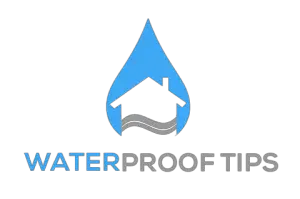Untreated mortar is not waterproof
It isn’t actually very water-resistant in the strictest terms, which is odd when you consider that dams and flood defences contain mortar.
Yet, things can be added to mortar to make it very highly water-resistant. Mortar in general is not a watertight material, nor is it impervious to water.
Types of Mortar
Although often used interchangeably, mortar is not the same as cement or concrete.
Mortar is a material used to hold together blocks in building – essentially the glue of construction.
The blocks can be brick, block and stone.
Mortar itself is made up of various ratios of cement, sand and lime.
There are many different types of mortar and the right type should be used for each material to which it is to bind.
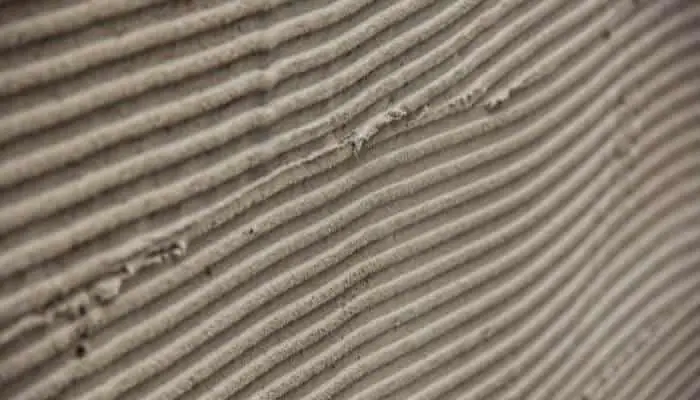
Different types of mortar are used for/as:
- Construction “glue”
- Pointing
- Rendering
- Painting
- Fixing roof tiles
- Chimney construction
Types of mortar can be bought pre-mixed but can also be mixed according to the ratios desired for the job.
Different ratios can be used to accommodate different purposes, especially when it comes to how water-resistant you want your mortar to be.
Age is also a consideration in some cases – such as if you are restoring an old building where the existing antique mortars are very different to the modern versions.
New types of mortar and different types can adhere to existing mortars but there are instances where mortar matching is best.
Mortar Additives
Alongside the actual basic makeup of the mortar, there are additives.
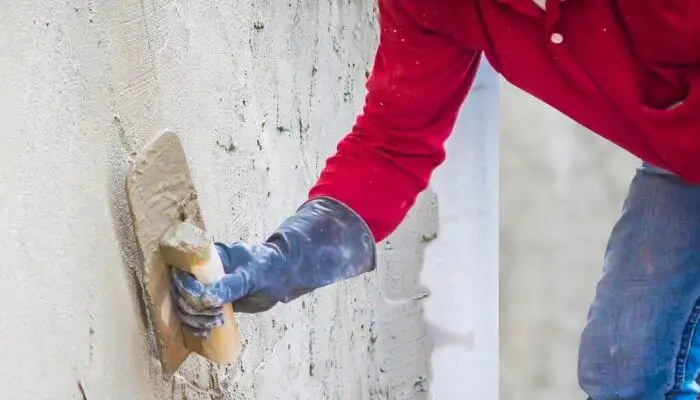
These include things like waterproofers, frost proofers, colors, accelerators (to speed up the hardening process), and plasticiser.
Mortar has a great many uses, and in almost every case, there is an additive or treatment that makes it fit for purpose, from the additives and sealants that make it usable underwater, to the materials added to make concrete bomb shelters explosion-proof.
How Mortar is Mixed
The actual makeup of the mortar is an issue. As mentioned, how much sand, cement, and additives, will make a big difference in how permeable the mortar is.
However, the way in which the mortar is mixed will also have a big impact.
An obvious factor is how much water is put into the mortar mix.
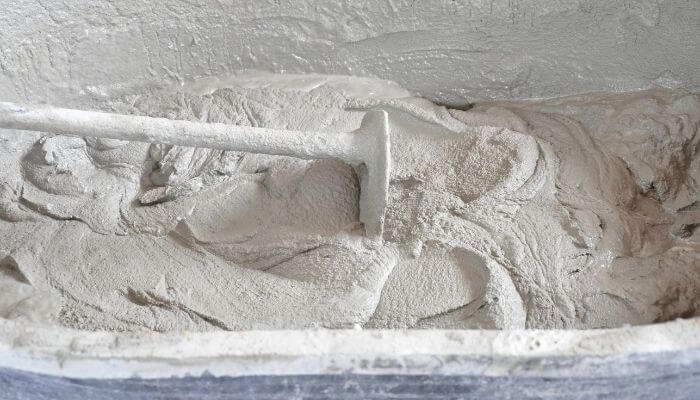
Typically, the less water you have in your mortar, then the harder and more water-resistant it becomes. However, this is only true to a certain point because you still need enough water for full hydration to happen.
Hydration is the binding of Portland cement due to a chemical reaction between the cement and the water.
Too much water will affect the curing process, making the mortar weaker and less resistant to water over the long term.
Similarly, too little water leaves the mortar even weaker and prone to breaking, which makes it even less fit for purpose when pressure from water is applied, or when moisture, heat and frost are applied.
It Takes a Long Time for Mortar to Degrade
Even without additives that can make mortar more water resistant, mortar still performs in harsh and wet environments for three reasons.
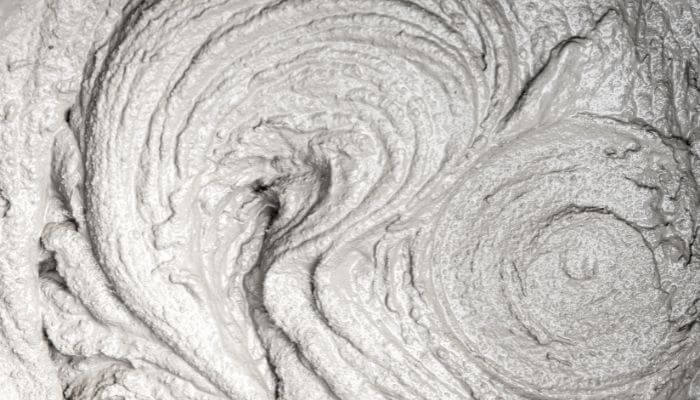
The first is that the mortar doesn’t degrade quickly, the second is that the water permeates at a very slow rate, and the third is that wetness doesn’t necessarily change how effective the mortar is.
Degradation
Obviously, a weaker mortar or a poorly mixed mortar is going to suffer if placed somewhere such as on a beach where the tide laps at it all day.
However, even a sub-par mortar mix is going to degrade more slowly than many of its alternatives.
Large blocks of concrete held together by mortar have been added to beach areas to help stop shores from eroding away.
The mortar binding these blocks contains additives that make it more water and abrasion-resistant.
Slow Permeation
Water does work its way through mortar eventually.
For example, if you have a flood outside your house, then the water will find its way in through your bricks, concrete, wood and plaster.
However, the rate at which the water moves through is pretty slow because of the dense makeup of the mortar itself.
The biggest problem in any construction would be wet mortar that holds water and also enables mould to grow.
Effectiveness
Many materials become weaker or more flexible when they are wet, but mortar isn’t really affected by an excess of water.
In fact, it often becomes stronger when it is exposed to more water, though the downside is that when the water freezes, it damages the mortar.
Mortar for use in very wet, flooded or very humid conditions should be mixed to be fit for purpose.
Mortar as a Building Material
The notion that a building material is not waterproof may lead some to question why it is used so widely, but as you have learned from this article, mortar is very suitable for building and even for projects in very wet and flooded areas.
With the addition of various chemicals and additives, mortar can be made waterproof and/or watertight. Plus, even regular mortar can be sealed so that it is watertight and doesn’t allow water to permeate.
Mortar is used for many things, from underwater building foundations to sinking a fence post.
Its strong and solid properties are big selling points, but its ability to be unaffected (mostly) by water, is probably one of its biggest selling points.
Thousands of years of historical use proves that there is no alternative to mortar.
Archaeology shows us that forms of mortar have been used since man began to build and chemical and scientific knowledge simply allows us to make better mortars.
